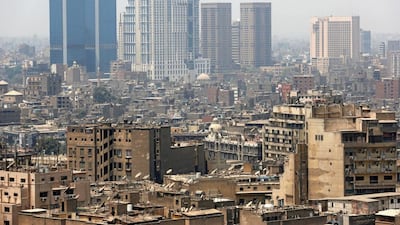Economic activity for Egypt’s non-oil private sector accelerated the most since 2014, a sign that growth may be recovering after authorities abandoned currency controls and secured a $12 billion IMF loan deal.
The Emirates NBD Purchasing Managers’ Index for the whole economy climbed for the third month in a row to 46.7 in February from 43.3 in January. The New Orders sub-index rose to 44 from 39.2.
While readings below 50 indicate the economy is still in contraction, the magnitude of the gain signals an improvement in business confidence after policymakers floated the pound in November to ease a crippling dollar shortage. The New Export Orders sub-index was the highest level since August 2015, data show.
“This suggests that the recent devaluation of the Egyptian pound is already having a positive impact on external demand, and this should continue to improve in the coming months,” the Dubai-based Emirates NBD said. “Overall, there are signs of stabilisation in the non-oil private sector.”
Companies taking part in the survey reported an increase in input costs in February, driven by “higher purchasing prices and, to a lesser extent, staff costs”, Emirates NBD said.
The Egyptian pound has lost about 40 per cent of its value since the float, causing annual urban inflation to accelerate to 28 per cent in January.
Authorities have cited rising dollar inflows in the banking system and an influx of foreign investments in government debt as other signs the reform plan is working.
The PMI survey showed the degree of optimism among companies improved to an eight-month high.
“Companies expect market conditions to improve, thereby boosting output over the coming year,” Emirates NBD said.
* Bloomberg

